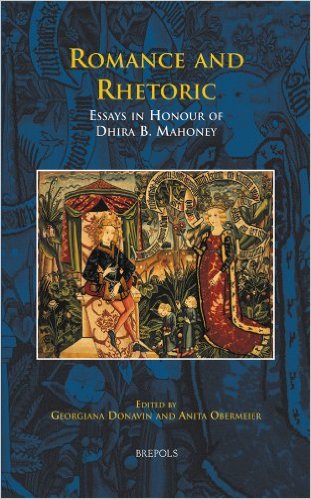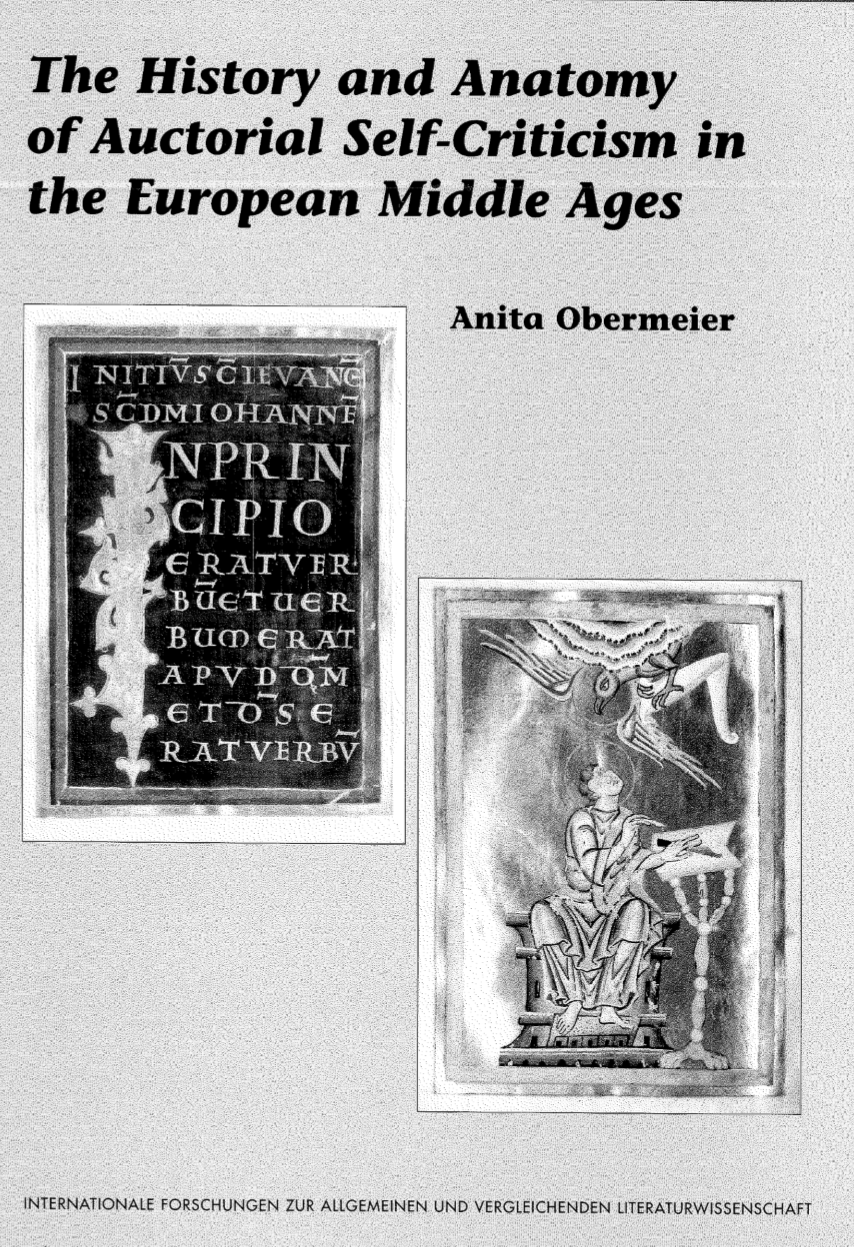Anita Obermeier
Anita Obermeier is a Professor in the Department of English at the University of New Mexico, where she serves as Department Chair. She has served as the Director of the UNM Feminist Research Institute, President of the Consortium for Teaching Medieval Studies (TEAMS), and President of the Medieval Association of the Pacific (MAP).
Romance and Rhetoric: Studies in Honour of Dhira B. Mahony
 | This volume honours the academic career of Professor Dhira B. Mahoney, recently retired from the Department of English at Arizona State University, who is well known for her rhetorical readings of medieval literature. Professor Mahoney's scholarship employs rhetorical theory in readings of late medieval literature, particularly prologues and epilogues, women's writings, and Arthuriana. As a response to her work, Romance and Rhetoric offers rhetorical readings of a variety of literary pieces from the late Middle Ages, especially for those authors and genres on which Professor Mahoney has published. Its collected essays provide interdisciplinary studies of art, social and literary history, manuscript transmission, and women's studies in relation to texts in Middle English, Latin, German, and French. In particular, the essays in this volume focus on the writings of courtly authors such as Chaucer, Lydgate, Malory, Guillaume de Machaut, Christine de Pizan, Chretien de Troyes, and others. In keeping with the ancient tradition of analysing rhetorical principles in the structure of an art work, they also examine the rhetoric of the manuscript art connected to these authors and the genres in which they wrote. This volume thus fills a gap in medieval literary scholarship, as it evaluates with scrutiny how rhetorical teachings or medieval poetic strategies inform the writing of romances. Buy this bookAmazon.com | University Bookstore |
The History and Anatomy of Auctorial Self-Criticism in the European Middle Ages
 | "This study outlines the history and anatomy of the European apology tradition from the sixth century BCE to 1500 for the first time. The study examines the vernacular and Latin tales, lyrics, epics, and prose compositions of Arabic, English, French, German, Greek, Icelandic, Italian, Spanish, and Welsh authors. Three different strands of the apology tradition can be proposed. The first and most pervasive strand features apologies to pagan deities and-later-to God. The second most important strand contains literary apologies made to an earthly audience, usually of women. A third strand occurs more rarely and contains apologies for varying literary offenses that are directed to a more general audience. The medieval theory of language privileges an imitation of the Christian master narrative and a hierarchical medieval view of authorship. These notions express a medieval philosophical concern about language and its role, and therefore the role of the author, in cosmic history. Despite the fact that women apologize for different purposes and reasons, their examples illustrate, on yet another level, the antifeminist subtext inherent in the entire apology tradition. Overall, the apology tradition characterized by interauctoriality, intertextuality, and intratextuality, enables self-critical authors to refer not only backward but also-primarily-forward, making the medieval apology a progressive strategy that engenders new literature. This study would be relevant to all medievalists, especially those interested in literature and the history of ideas." Buy this bookAmazon.com | University Bookstore |






